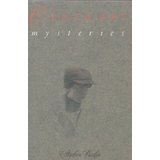It’s been almost 15 years since I first read this collection of short essays by Vicchio, longtime Philosophy professor at Notre Dame College of Maryland. Even then I recalled having already encountered a few of the pieces in the local paper; this was back when Op-Ed pages sometimes carried such diversions.
The essays, which rarely run more than three or four pages, are what we would now call creative nonfiction. Truer to Montaigne’s original definition than to the formal school essays to which we’ve become accustomed, Vicchio’s ponderings range from funny to profound. Reading them is like having the best dinner conversation ever.
He takes the most ordinary occasions—looking at the clouds, going to a toy store, watching students raise their hands in class—and carries us more deeply into the experience. As a man who has read widely and thought deeply, Vicchio surrounds each simple experience with a web of echoes and associations.
For example, in “Music is its Roar” he writes about listening to the ocean on the last night of vacation in Bethany Beach, Delaware. After placing us in the moment by describing his porch and the beach and the children playing there earlier “looking like small King Canutes”, he tells us that “this evening everything has disappeared.” What follows are descriptions of the sounds and the thoughts roused by them, ranging from the Byron quote which provided the title, through baseball, Hindu priests and Darwin before coming to rest in Plato. Although this may sound forced and dauntingly erudite, believe me: It is not. The sentences flow one into another in a beautifully quiet rhythm, leading in only two short pages to a satisfying conclusion.
Others of his pieces take off from a news item. Since most of these pieces were written in the 1980s, you’d think old news would be boring. Unfortunately, though the names may have changed, we still have dishonest preachers, muggers, and mass murderers. We still have the mentally ill, shoved onto the street when the back wards were emptied, left to die alone, stifled by their delusions like Gladys Finkenbinder. The plastic she’d taped over her windows to keep the voices out prevented anyone from noticing the fire in her kitchen until it was too late.
In some essays, Vicchio writes about his childhood, summoning up a world now gone, a world of dancing to Buddy Deane with his sisters, cutting mass to have a cherry coke at the Rexall drugstore’s soda fountain, feeling awkward at CYO dances, watching Sky King on Saturdays, fearing the school incinerator and its terrifying keeper. Such pieces brought back many memories for me, but the grounding of experience in each is universal enough to appeal to those growing up in another time or place.
I especially loved the essays that touch on time and memory. This is a collection I know I’ll come back to again. And if you’re looking for some good dinner conversation, invite Stephen Vicchio by picking up this or another of his essay collections.
What essays have you read lately that set you thinking?

